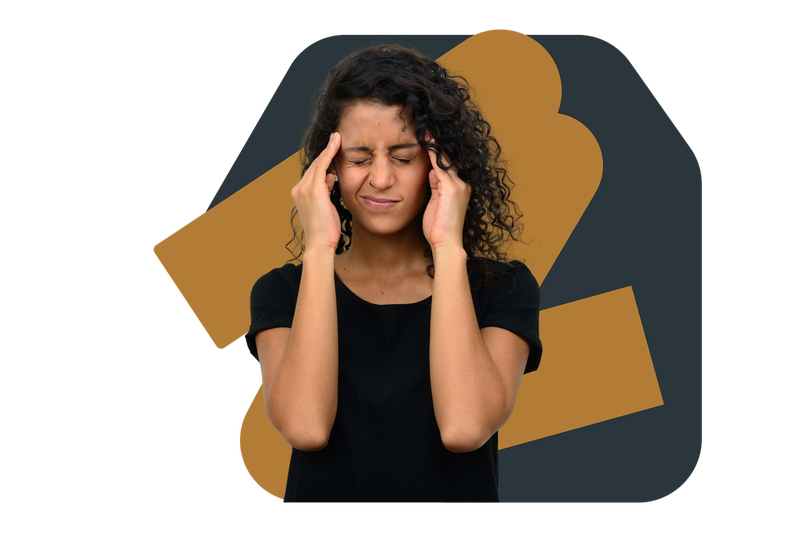Stress Management
Explore effective strategies to help you build resilience, manage overwhelming emotions and bring balance to your life. Develop a personalised toolkit for managing stress, from relaxation techniques to time management skills. Strengthening your stress management skills, will empower you to not only manage life's challenges, but to thrive in the midst of them.
Common life stressors

Finding support for stress
During stress counselling sessions, your psychologist can help you to better understand your triggers and responses to problem stress and help you learn strategies to more effectively respond across different domains of life. You'll focus on practical strategies, identify strengths, and work toward actionable goals to manage and reduce stress.
While there are many ways you can manage stress on your own, working with an experienced psychologist will ensure you are receiving evidence-based care that is customised to your specific circumstances.
Mental Health Impacts
Physical Health Impacts
Cognitive Impacts
Available psychologists who can help with stress
What is stress?
Stress is a natural, normal process that all people experience. It is a physical, emotional, and mental response to an external event that you feel overwhelmed by, or fear you may not be able to cope with.
The physiological symptoms of stress are often short-lived, preparing you for either ‘fight’ or ‘flight’. Stress can cause your heart to beat faster, your breath to quicken, your stomach to feel unsettled and your sweat glands to activate. In moderate amounts, stress is not a problem. In fact, can be quite helpful to motivate you to act, whether that is running away from physical harm or knuckling down to get a work assignment finished.
The threshold for a ‘healthy’ amount of stress is different for everyone. It is based on the stressor, the perception of one’s internal resources, and a range of attitude and personality factors. When stress is prolonged, or extremely heightened, it can become problematic for your health, and is a risk factor for several physical and mental health disorders, such as anxiety and depression.
Most of us live busy lives full of stress, so learning to identify unhealthy stress and develop strategies to deal with stress is an important protective factor for our health.
What are common stress triggers?
While different things lead to stress for different people, there are a few common incidents/situations (known as, stressors) that many people find difficult to manage.
Common stressors include:
- Relationship conflict – tension or breakdowns in romantic, family and friend relationships are common causes of stress. Major events like Christmas, weddings and birthday parties can be particularly triggering.
- Financial problems – losing a main source of income, being unable to make important payments or not being able to live the lifestyle you want due to debt can be major sources of stress.
- Health concerns – managing ongoing health concerns or the diagnosis of a serious illness, either for yourself or your loved ones can be incredibly distressing.
- Work issues – starting or ending a job, feeling unable to manage your workload, or having difficulties with management can all be major stressors, particularly if your work is a large part of your identity.
- Caring for a baby – the responsibility of caring for a newborn, paired with the sleep deprivation and dramatic change to everyday life can be overwhelming for many parents. Persistent feelings of anxiety and sadness may be indicative of postnatal depression.
- Traumatic events – experiencing or witnessing physical and emotional trauma is highly distressing. Persistent feelings of stress, vigilance and/or disruptions to everyday life following the incident may be a sign you are experiencing post-traumatic stress.
What are some strategies for managing stress?
Developing effective strategies to manage harmful, prolonged stress has benefits on both our physical and emotional wellbeing.
The first step is to become aware of your reactions to stressful events. Consider a stressor you encountered this week. On a scale of 1-5 how stressful did you consider it to be? What were your thoughts and feelings about the event? Did your behaviour change in reaction to it (e.g. did you have trouble sleeping, eat unhealthy food, smoke or drink more than usual?) Were you able to calm yourself down? If so, what was most effective?
Secondly, remember to engage in behaviours that help to manage and reduce stress. These healthy behaviours are also considered protective factors for mental health in general. These include healthy routines, exercise, engaging in activities that recharge you and managing situations or potential conflicts that will lead to further stress. It’s no surprise that these behaviours can be hard to put into practice when you are feeling overwhelmed, so having an idea of the things that help you destress and practicing these habits can help you to put this into practice in the moment more effectively.
Finally, if you need some further support in managing stress, reaching out for help, whether from a friend, family member or accredited psychologist may be the most important action you take.
How can you use solution focused therapy to reduce stress?
- Goals – Learn to set specific, measurable, achievable, relevant and timely goals relating to reducing stress.
- Coping – Work together to identify some practical tips and strategies to manage stress and improve resilience.
- Identify strengths – Your psychologist can help you understand your strengths (or sometimes see strengths you didn't even know you had). This knowledge will help you better understand what internal resources your have to help you cope with stress more effectively.
- Problem solving - Psychologists can help you problem solve by being a great sounding board, or they can give new perspectives or insights. They can help you to be more confident to find solutions to the challenges you are facing.
- Improve relaxation techniques – Psychologists are a wealth of knowledge when it comes to relaxation techniques and strategies. They might teach you things like deep breathing, progressive muscle relaxation, mindfulness, meditation or even used guided imagery to help reduce your stress levels.
- Mindfulness – Sometimes we get caught up in future worries or dwelling on challenges in the past. You may explore and introduce mindfulness based practices (like mindful breathing, eating or body scan exercises) to help bring you back to the present moment and reduce rumination and focus on past or future stressors.
- Routines and healthy habits – Your sessions might focus on the development of healthy routines and habits that can help incorporate relaxation, resilience and self care strategies.
- Improve communication skills – By enhancing your communication skills you will be better able to express your needs and be assertive in getting your needs met.
- Healthy relationships – A key focus of reducing stress could be around harnessing social supports. This can include cultivating supportive relationships, learning about enforcing healthy boundaries, and also how to navigate relationships and seeking emotional comfort or practical assistance during times of overwhelm and stress.
What clients say about My Mirror
Ease of access
Very easy to use the dashboard and excellent to read the bio's of each Psychologist to determine best fit. Very happy with service and support.
Such a great service
I have been nothing but impressed and grateful for My Mirror and my psychologist. The way that they put me in touch with the right person make me feel grateful and the user interface / booking system is nice and easy. Very satisfied and would recommend to others.
Customer experience
Everyone in the team from my psychologist and the customer support team is so supportive and understanding. They act really quickly and get you what you need whilst being lovely people to deal with! 10/10 recommendation.
Great Selection
Great selection that allows you to find the perfect fit for your needs. I found my perfect match first time . This is a very easy platform to use and working online makes it so comfortable to talk. Definitely give it a try, just make sure you read the profile so get a good fit.

